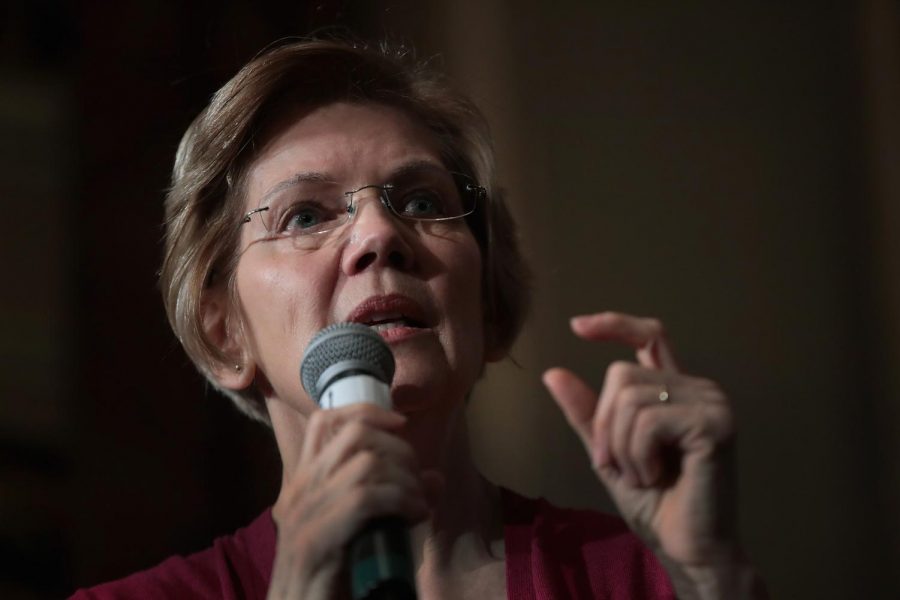The Trump administration’s attack on women, immigrants and other minority groups has been well-documented. His inauguration seems to have ushered in an unrelenting stream of misogyny, racism, homophobia and white supremacy. It was unsurprising, considering his own history of sexual misconduct and knack for racist rhetoric.
In response to the inflammatory atmosphere, democratic voters took to the polls during the 2018 midterms and ushered in the most diverse group of congress women and men to date.
Building on this momentum, there are currently four female democratic candidates all with their own platform and experience. Though to win the nomination, they’ll have to appeal to a wide set of needs from within the party, according to political science professor, Dr. Taylor Dark.
“There’s a demand for a strong critique of the Trump administration and a progressive voice-not a particularly centrist candidate,” said Dark.
“Of those running, I don’t see a lot of difference,” said Dark. “They ‘re all trying to sell the same product. It’s like trying to buy laundry soap-they’re all pretty similar so they have to try to differentiate themselves by presenting themselves as more liberal or more sensible.”
Kamala Harris
“For the People” reads Harris’ campaign slogan, a phrase she often uttered in the courtroom as a former San Francisco prosecutor. Harris’ background has been the subject of both high praise and harsh criticism. Progressives condemn her past participation in a broken criminal justice system, claiming she has a history of supporting wrongful convictions and has contributed to mass incarceration, an issue that disproportionately affects communities of color. Her courtroom demeanor has been a benefit in her role as California senator where she is infamously persistent, leaving no question unanswered and no one unscathed. Harris also advocates for recidivism reduction to help former felons avoid a return to prison. Beyond her work in criminal justice, she has spoken out in support of universal health care and The Green New Deal, a legislative bill that aims to link climate change to economic growth.
While it might be too early to name a frontrunner, Dark sees Harris as having “the biggest momentum.”
“She fits the demographic profile that a significant portion of the party finds attractive,” he said. “She has support from elite networks within the party and the the news media are sympathetic to her.”
Kirsten Gillibrand
The New York senator has unabashedly based her career on advocating for victims of sexual assault. She has proposed and backed legislation that would aid victims of harrassment and assault in highly protected institutions including the military, college campuses and even congress itself. Similarly, she has shown support for protecting reproductive rights and offering affordable and accessible childcare. In terms of immigration policy, she has consistently supported the DACA program for children of undocumented individuals and programs that help refugees and asylum-seekers.
Tulsi Gabbard
The Hawaii Congresswoman put her name on the political map after her 2016 endorsement of Bernie Sanders and his socialist agenda. A former war veteran, Gabbard is a particularly strong advocate for anti-interventionist foreign policy, an extreme policy that is popular on both the left and the right fringes. Her stance has made some democrats suspicious of her liberal affiliation especially considering her history of meeting with foreign dictators and collaboration with those on the far right including those in the Trump administration. Gabbard has also recently changed her views regarding issues of identity. While she initially voted against abortion rights and same sex marriage, she has since amended in support. She proposed a progressive environmental deal that would limit the use of fossil fuels. In addition, she has also supported tuition-free higher education, universal health care and gun control.
Elizabeth Warren
The Massachusetts senator has been a prominent critic of the Trump administration. She has been particularly outspoken against family separation and has called for the replacement of ICE. Warren has also been critical of the power large corporations wield over consumers and values the protection of consumer rights.In the era of #MeToo, she has championed women’s rights by allying with survivors and working to eliminate the gender pay gap. She’s also pushed for a higher minimum wage, universal health care and tuition-free education.
“She has a history of being a strong consumer advocate, a person who has criticized businesses for basically ripping people off. That’s appealing right now,” he said.
The next president will likely appoint at least one supreme court justice, so the long-term repercussions of the 2020 presidency can determine the course of the Country for decades.






